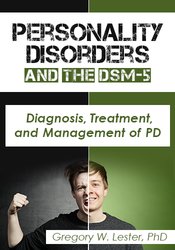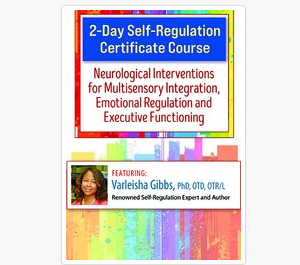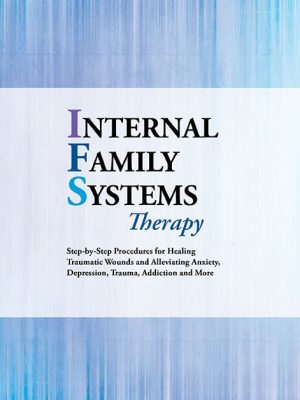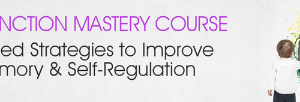Robert Rosenbaum – Neuroscience for Everyday Practice, Connect Brain Science with Clinical Strategies
$200.00 Original price was: $200.00.$75.05Current price is: $75.05.
This integrative recording will show you how to fundamentally transform your practice by linking complicated science to practical and accessible clinical techniques you can use every day!
Robert Rosenbaum – Neuroscience for Everyday Practice, Connect Brain Science with Clinical Strategies
Scientific research on the human brain’s connection to our mental and physical well-being continues to astound. While dazzling pictures and scientific lingo certainly impress, mental health clinicians are faced with a pressing problem. How do I connect the power of neuroscience to my everyday work with clients facing stress, anxiety, emotional dysregulation, trauma, chronic pain, and other issues?
As a neuropsychologist, Robert Rosenbaum, Ph.D., has spent his career working with the brain-behavior relationship. His expertise in the principles of neuroscience, functional neuroanatomy, and diagnostics give him a unique insight into the correlation between mental health disorders, therapeutic approaches, and what happens in the brain itself.
This integrative recording will show you how to fundamentally transform your practice by linking complicated science to practical and accessible clinical techniques you can use every day!
Key benefits of watching:
- Neuroscientific explanations that change the way clients feel about themselves and motivate them to engage in the deeper work that needs to be done.
- Innovative ways to integrate research findings with easy-to-implement clinical interventions based on mindfulness, Cognitive Behavioral Therapy, and somatic approaches.
- Regulate emotions with techniques informed by a neurobiological understanding of how they’re made.
- Control impulsivity and improve attention with techniques that act on the brain’s executive control function.
- Effective mind-body approaches to manage chronic pain.
Discover how incorporating neuroscience into your therapy can rejuvenate your practice and provide the spark you need to change clients’ perceptions and improve their lives!
- Promote engagement in treatment with explanations that make neuroscientific research and principles accessible for clients.
- Articulate how mindfulness skills that impact the neurological processes involved in stress can be incorporated into therapy.
- Implement an approach that addresses the symptoms of anxiety with clinical techniques focused on activating the parasympathetic nerve system.
- Communicate how an understanding of the neuropsychology of attention and executive control can inform your choice of therapeutic intervention to address attentional difficulties.
- Analyze the clinical implications of memory malleability in the treatment of trauma.
- Evaluate research on the mind-body connection to chronic pain perception, and explicate how this information can be used in clinical practice.
Would you like to receive Robert Rosenbaum – Neuroscience for Everyday Practice, Connect Brain Science with Clinical Strategies ?
Manage Destructive Emotions With Effective Brain-Based Approaches
- Embodied cognition and how emotions are made
- Multimodal processing of emotions
- Valence and Arousal: Dimensional Models of Emotion
- Depression and anxiety
- The neural interrelationships of depression and anxiety
- Behavior is biology: treating dysphoric affects with physical interventions
- Mindfulness and breathing exercises to regulate emotion
- Cognitive restructuring and goal building
Stress in a Fast-Paced World: Therapeutic Strategies Informed by Biological Time and Brain Clocks
- Biological time vs. clock time
- Multiple brain clocks and circadian rhythms
- Mindfulness, compassion, and time
- Rushing vs. relishing
- Cultivate “presence” with clients
ADHD, Inattention, Hyperactivity, and Impulsivity: The Biology of Attention and Brain-centric Interventions
- The brain’s attention networks
- Varieties of attention – assessment and utilization
- Executive control of attention
- Impulsivity and the brain’s reward pathway
- Mindfulness awareness
- Improve attention with strengths-based approaches
Trauma: Clinical Techniques Informed by the Science of Memory
- Memory as an active reconstruction
- Techniques to calm the traumatized brain
- Mindfulness
- Imagery
- Somatic approaches
- Malleability of memory: implications for treating trauma
Rewire the Brain to Ease Chronic Pain
- Multiple pathways – ascending and descending
- Pain intensity vs. pain distress
- Counter catastrophizing
- Mind-body interventions for pain
- Guided imagery
- Qi gong
- Yoga
Be the first to review “Robert Rosenbaum – Neuroscience for Everyday Practice, Connect Brain Science with Clinical Strategies” Cancel reply
Related products
Health & Medical
Gregory W. Lester – Personality Disorders and the DSM-5 – Diagnosis, Treatment, and Management of PD
Health & Medical
Deborah Dana – Polyvagal Theory in Action with Deb Dana, LCSW
Health & Medical
Health & Medical













Reviews
There are no reviews yet.